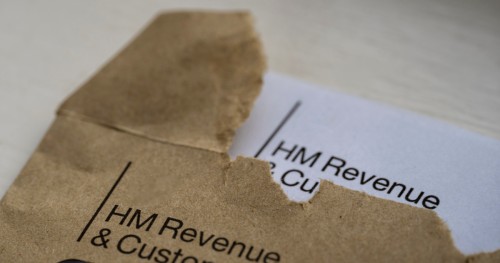Freelancers' Questions: How to be self-employed in Italy if I leave the UK?

Freelancer’s Question: I’m a Lithuanian living in the UK, however, at the end of this month, I’m planning to move to Italy to be with my partner because I’ve found a remote position with a freelance contract.
The problem is that to be self-employed in Italy, I need to get a ‘partita iva’ (VAT number) and to do so, I need to get residency. To get residency, a few things that I’m required to show proof of is health insurance and proof of income if I’m self-employed. That’s where the problem is -- how can I prove to them legally that I’m self-employed if I can’t get my VAT number yet?
I’m starting the new job on December 7th, and it’s with a company based in Slovakia. Since they don’t have offices in Italy, I’ll go freelance, meaning I’ll be paying all of the necessary Italian tax contributions myself. But to be tax-compliant, I need to get partita iva and the rest of the documentation.
So if I can’t get residency, I’m not able to register as a freelancer. My partner contacted the commune of the town that I will be registering at to ask if my contract would be enough of a proof, but since the company themselves won’t be paying anything to the Italian tax authorities, it’s really no use apparently. It’s a vicious circle, please advise!
Expert’s Answer: The first step to becoming a freelancer in Italy or ‘libero professionista’ (in Italian), is to open a so-called ‘ditta individuale,’ which is a sole proprietorship or sole trader.
When you open a ‘ditta individuale’ you will get your ‘partita iva,’ a compulsory tax number that allows you to invoice and receive payments.
First you're off to the chamber, then the institute
Generally, we advise you to go to the chamber of commerce of the city where you are resident in Italy, and visit the local INPS (National Institute of Social Security).
INPS is the primary social security institution of the Italian public pension system. That means that all public and private businesses, must by law register with them.
The whole registration process costs around €150 (£135), so it isn’t prohibitive. But a word of warning -- it will probably take a little bit more time than you’d like to fill in all the documents correctly!
Contract should be enough (but beware of some likely controls)
The proofs of income you will need will be your contract with your client. It should suffice to show that you expect to have an income.
Although you can register online, we strongly advise you to seek the assistance of a local legal adviser throughout the entire process, to avoid any errors. It is essential to determine the correct activity code with your adviser.
The code fixes in place the tax regimes that you can benefit from, and your social security contributions, as well as the likely and potentially unwanted controls you may subject to from the Italian authorities (often dependent on the activity or sector you will operate in).
Healthcare and health insurance: in a nutshell
Regarding healthcare in Italy, the first step to public healthcare eligibility in Italy is to register with the SSN. This is done at the Azienda Sanitaria Locale (ASL), your local health unit.
Your first step is to visit the ASL, so you know which requirements apply to you and there you’ll receive instructions on how to fill in the application form.
This form is the ‘Bollettino Postale,’ obtained, completed, and paid for at the Post Office, for which you will be given a receipt.
Five formalities you can then tick-off
At your ASL office, you can carry out the following formalities:
- Registering with the Italian National Healthcare Service;
- Obtaining a ‘Tessera Sanitaria’ (Italian health insurance card);
- Choosing a public primary care physician (‘medico di base’);
- Choosing a paediatrician for your children, if applicable;
- Requesting medical leave or medical care at home; ,
Paperwork must-haves
However, remember to have the following with you:
- Your passport;
- A valid permit to stay, or the receipt you get when you ask for it;
- A valid ‘Codice Fiscale’ (Italian Tax Code) issued by the ‘Agenzia Delle Entrate’ (Italian Revenue Agency);
- Self-declaration of residency or place of abode;
- The receipt of payment for the registration to the SSN from the Post Office;
- If you are a student or au pair, a document confirming you are enrolled at a school or your au pair contract;
- A copy of all the above documents. ,
Two registration options
After registering with the SSN, you will receive your Tessera Sanitaria. There are two types of registrations, mandatory and voluntary.
Mandatory registration applies to most residents, workers, and family members for example, while voluntary registration is usually for visitors of shorter stays, such as students, au pairs, religious staff.
The health card is then sent to your home address and is valid as long as you have permission to stay in the country.
If you renew your residence permit, make sure you renew your Tessera Sanitaria as well.
Final hurdles to jump
This is done at the ASL, with:
- passport;
- proof that you have requested the renewal of your residence permit;
- your tax code;
- certificate or self-declaration of residence.
- Once you are properly registered with the SSN and have your Tessera Sanitaria, you will be asked to register with a family doctor. ,
Good luck with both your exciting transition and your new freelance contract!
The expert was Kevin Austin, managing director of accounting firm and overseas tax-compliance advisory Access Financial.



Comment
Log in or create your account to react to the article.